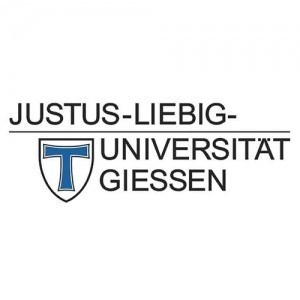Photos of university / #uni_duisburg_essen
The MSc in Transnational Ecosystem-based Water Management (TWM) is an integrated, interdisciplinary Master's degree programme in the sector of ecological water management, offered by the Radboud University Nijmegen and the University of Duisburg-Essen. It focuses on four main fields of study: aquatic ecology, hydraulic engineering, management and planning, and socio-economics.
Characteristics of the degree programme are:
The MSc in TWM programme consists of nine modules. The six modules Basic Water Ecology, Applied Water Ecology, Water Engineering, Water Basin Management, Sustainability and Wetland Management, and Social Environmental Sciences cover the main fields of study. These are completed in the first year. The Optional Courses module offers a variety of subjects for deepening knowledge in related scientific fields, such as ecology, microbiology, engineering, or economics. The two remaining modules represent an internship/project work of about 10 weeks and the Master's thesis.
Characteristics of the degree programme are:
- A strong link to water management practice, manifesting itself firstly in the recruitment of water management experts working for potential employers as instructors and secondly in a compulsory internship at a firm or organisation which is a potential employer
- An interdisciplinary approach both within and between universities and countries
- International scope: English will be the "lingua franca" of the degree programme, and all forms of instruction (except for a few non-compulsory courses) will be carried out in English
- In addition to conveying specialised knowledge, the programme will place special emphasis on the development of competence and soft skills in areas such as problem-oriented thinking, the ability to present oneself and one's ideas, and acting in different cultural settings.
The MSc in TWM programme consists of nine modules. The six modules Basic Water Ecology, Applied Water Ecology, Water Engineering, Water Basin Management, Sustainability and Wetland Management, and Social Environmental Sciences cover the main fields of study. These are completed in the first year. The Optional Courses module offers a variety of subjects for deepening knowledge in related scientific fields, such as ecology, microbiology, engineering, or economics. The two remaining modules represent an internship/project work of about 10 weeks and the Master's thesis.
Educational organisation
Phase OneDuring the first and second semesters, students study the six compulsory modules Basic Water Ecology, Applied Water Ecology, Water Engineering, Social Environmental Sciences, Water Basin Management, Sustainability and Wetland Management. Students starting in the summer semester will be taught in their first semester at the University of Duisburg-Essen (Germany), whereas the second semester will take place at the Radboud University of Nijmegen (The Netherlands). Students starting in the winter semester will be taught in their first semester at the Radboud University of Nijmegen (The Netherlands), whereas the second semester will take place at the University of Duisburg-Essen (Germany).
Phase Two
This part of the programme is devoted particularly to project work and a required choice of elective courses during the third semester. The focus will be on practical water basin management, applying knowledge acquired in the first two semesters through an internship with potential employers.
Phase Three
The main focus of the fourth semester is the Master's thesis. In most cases, students will start work on a topic related to the Master's thesis during the internships in the third semester. As a general rule, the thesis will have an applied topic, such as planning of restoration measures, monitoring concepts, public relations campaigns, or analysis of watershed management data. In selected cases the focus of the Master's thesis will be research-oriented and it will be carried out within an institute of the participating universities.
Study abroad unit(s)
A minimum of one semester at the cooperating university at Nijmegen/The Netherlands is mandatory. During the third semester, students will do an internship, preferably at a university, institute or company outside The Netherlands or Germany.Students will graduate at the Radboud University Nijmegen (The Netherlands) and at the University of Duisburg-Essen.
Internships
In the third semester, the focus will be on practical water basin management, applying knowledge acquired in the first two semesters through a 12-week internship with potential employers.Programme advisers will assist students in finding an appropriate internship.
Forms of assessment
Written and oral examinations, oral presentations, written project reports, determination exercises, exercises, essayFor detailed information, see the module handbook at: http://www.uni-due.de/twm
Language requirements
Reasonable English language proficiency (e.g. TOEFL 550 points paper-based test (PBT), 215 points computer-based test (CBT), 80 points internet-based test (IBT), IELTS 6.5 or higher), Cambridge EFL examinations (CAE or CPE diploma, both with a minimum pass grade C)Academic requirements
Formal requirements for enrolment in the MSc programme in TWM include:- a university Bachelor's degree (diploma, state examination) in biology, ecology, environmental sciences, chemistry, physics, geology, geography, civil engineering or hydrology
- a Bachelor's degree (diploma) from an HBO or Fachhochschule in related fields (a remedial programme will be required)
- reasonable English language proficiency (e.g. TOEFL 550 points paper-based test (PBT), 215 points computer-based test (CBT), 80 points internet-based test (IBT); IELTS 6.5 or higher)
Enrolment fees
Enrolment and social fees are included in the above-mentioned tuition fees. Fees include a semester ticket covering public transport in the North Rhine-Westphalia area in Germany (NRW ticket).Costs of living
Approx. 600-800 EUR per month to cover personal expenses, depending on costs of accommodation and living standardArrival support
See: http://www.uni-due.de/twmServices and support for international students
International Office, accommodation service, tutoring, etc.Accommodation
Accommodation is available through the Student Services Office or on the private market. The TWM programme coordinators will assist you in finding a room if necessary. Rent for a single room in a student residence is approx. 260 EUR. Private accommodation can be found on the internet at:http://www.uni-due.de/twm









